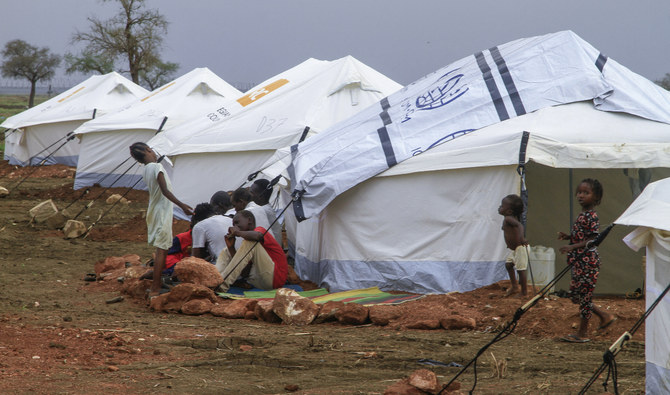PORT SUDAN: The commander of Sudan’s paramilitary Rapid Support Forces, at war with the army for over a year, agreed late Tuesday to ceasefire talks next month.
In a post on social media site X, Mohamed Hamdan Dagalo said he “welcomed” US Secretary of State Antony Blinken’s invitation to negotiations.
“I declare our participation in the upcoming ceasefire talks on August 14, 2024, in Switzerland,” the paramilitary commander wrote.
“The talks in Switzerland aim to reach a nationwide cessation of violence, enabling humanitarian access to all those in need, and develop a robust monitoring and verification mechanism to ensure implementation of any agreement,” Blinken said.
Since April 2023, a brutal war has raged between Sudan’s regular military, under army chief Abdel Fattah Al-Burhan, and his former deputy Dagalo’s RSF.
The conflict has resulted in tens of thousands of deaths and uprooted more than 10 million people, including two million who have fled across borders, according to the United Nations.
Previous mediation attempts, including by the African Union, have failed to get the warring parties in the same room, as experts said both forces vied for the tactical advantage on the ground.
Indirect talks between the RSF and Sudanese military, held this month in Geneva by UN Secretary-General Antonio Guterres’s personal envoy for Sudan, Ramtane Lamamra, were called an “encouraging” first step by the UN.
The talks focused on humanitarian aid and protecting civilians, though neither side met directly with the other.
Both the RSF and the army have been repeatedly accused of war crimes including deliberately targeting civilians, indiscriminate shelling of residential areas, and blocking humanitarian aid, while millions of Sudanese suffer on the brink of starvation.
The RSF has specifically been accused of ethnic cleansing, systematic sexual violence and rampant looting.













